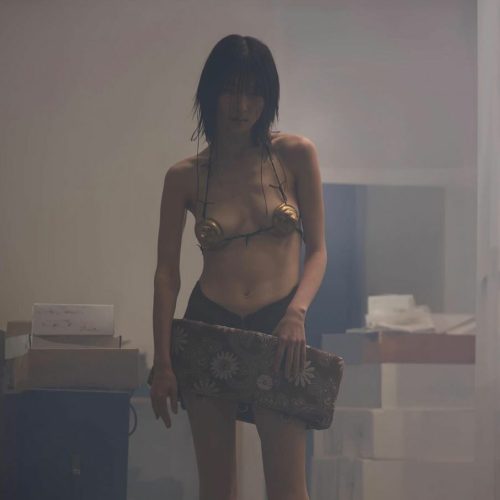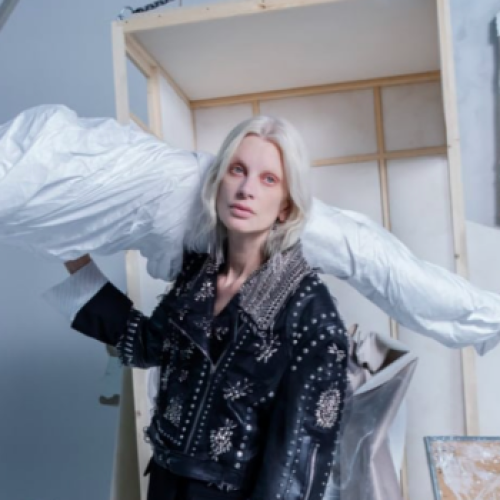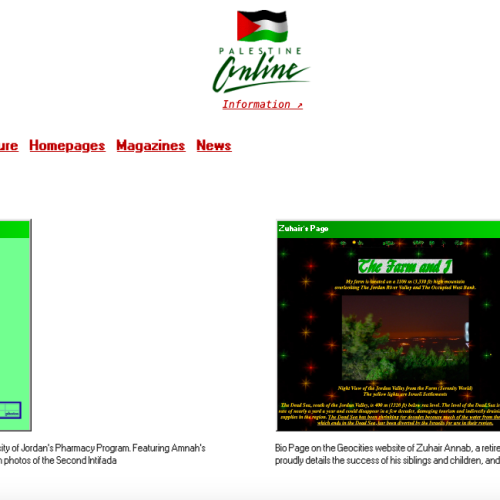For 22-year-old Jordanian-Palestinian Parsons graduate Solenne Tadros, memories are precious. Through them, she has been able to explore intimate stories of exile from her Palestinian family and navigate her own identity in the process.
With her new accessories brand, aptly titled (x)odus, Tadros brings these family memories to life. “My grandmother Leila Khoury Nimry, who fled Haifa in 1948, is the person who inspired me”, she says.
Introduced to displaced artisans by her designer friend Tania George Haddad, Tadros now works very closely with them, making sure their stories are told and expressed through her designs. She notes, “I don’t want my name or personal experience to be promoted; this is for people whose voices haven’t been heard”.
Upon meeting the artisans, Tadros sat with them for hours and lengthily discussed the feeling and emotions that erupt during exile. Two of the craftswomen kept on referring to hope, the hope they felt when fleeing their homes to find safety, and the hope to one day be able to return. The result is a minimalist Ikea-inspired bag, with the word hope (amal) embroidered, as a reflective statement of their experiences caused by displacement, retailing for $194.8 – a nod to the 1948 exodus from Palestine.

We caught up with Tadros to find out why she doesn’t like the word refugee and why bags are her medium of choice.
When did you decide to create (x)odus?
During my semester abroad in France in 2017. I took the metro to go to school and during my commute I always felt a sense of helplessness. There was a Syrian family holding up a sign saying “Syrian Family, please help” and Parisians would pass by as if they weren’t even there. I wanted to do everything I could to help, and as I gave change to the mother she said “God bless you”. In that moment, I felt her vulnerability more than ever. So I made a promise to myself that I would do whatever I could to help the people that have experienced such trauma and displacement, like that Syrian family and my grandmother.
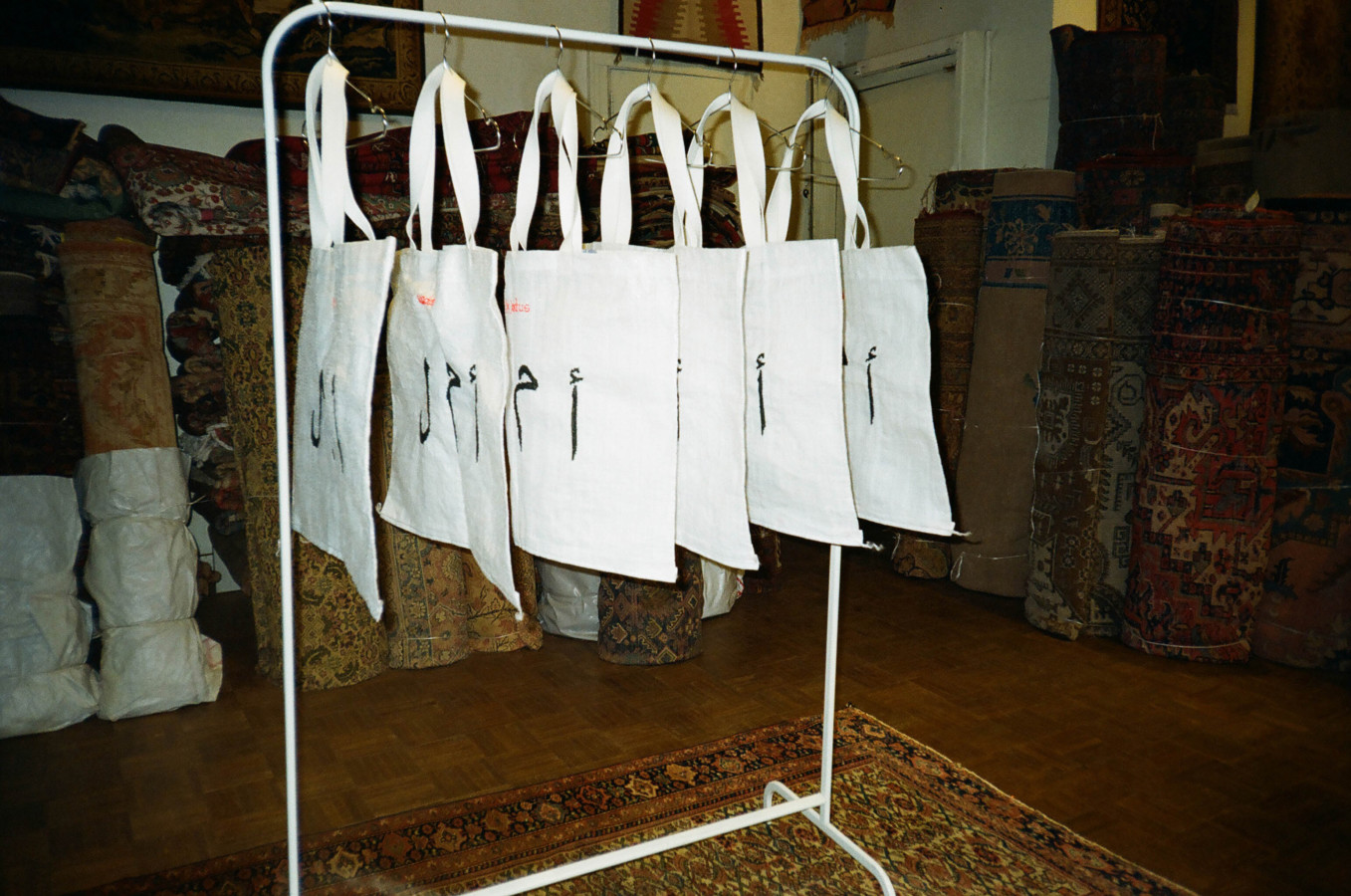
How do memories influence your work?
Having never been to Palestine myself, my connection to Palestine exists through the memories of my grandmother. She told me the only things she kept with her until today are the sparse memories of the spaces she once used to occupy. That’s why I decided that on top of my bag collection, (x)odus would also offer Virtual Reality experiences. So I turned her memories of her bedroom into an immersive environment that she can experience in real time. My interest in immersive storytelling played a big role in the greater concept of this part of the project. Not only did I want to archive my grandmother’s memories of Palestine, but I also wanted to give her the chance to virtually cross borders and time travel back to the place she once used to call home.
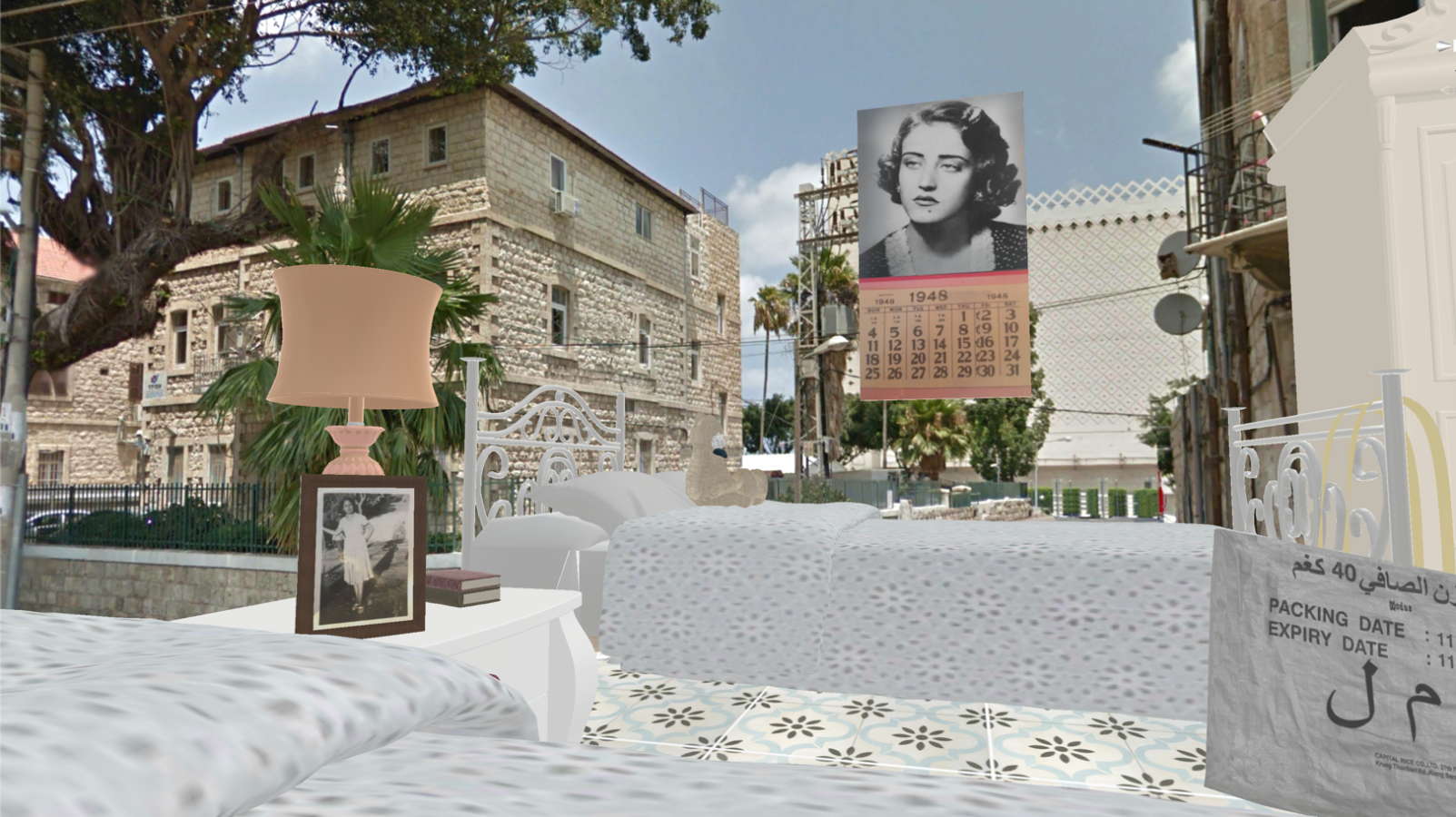
In your slogan it says “rebuilding lives”, what do you mean by that?
Displaced people have been bundled up into a statistic and placed under the label of being a refugee. The longer we decide to keep them under this umbrella, the longer we decide that their individualism is no longer important. We focus too much on the word refugee and too little on what has led to this person to earn this status, and what this person has had to leave behind.


Why bags?
My grandmother mentioned how her whole family packed all their belongings into two suitcases. The bags we created are called Kees or Kyas plural, and started off as merely being symbolic of displacement. In an effort to create a project that was a sustainable and durable, the idea of using empty ingredient bags seemed practical since they are very high in quantity and always discarded. It was only after we produced the first prototype that I came across images during my research upon the matter, that hundreds of thousands of displaced people were using empty ingredient bags to carry their belongings across borders.






